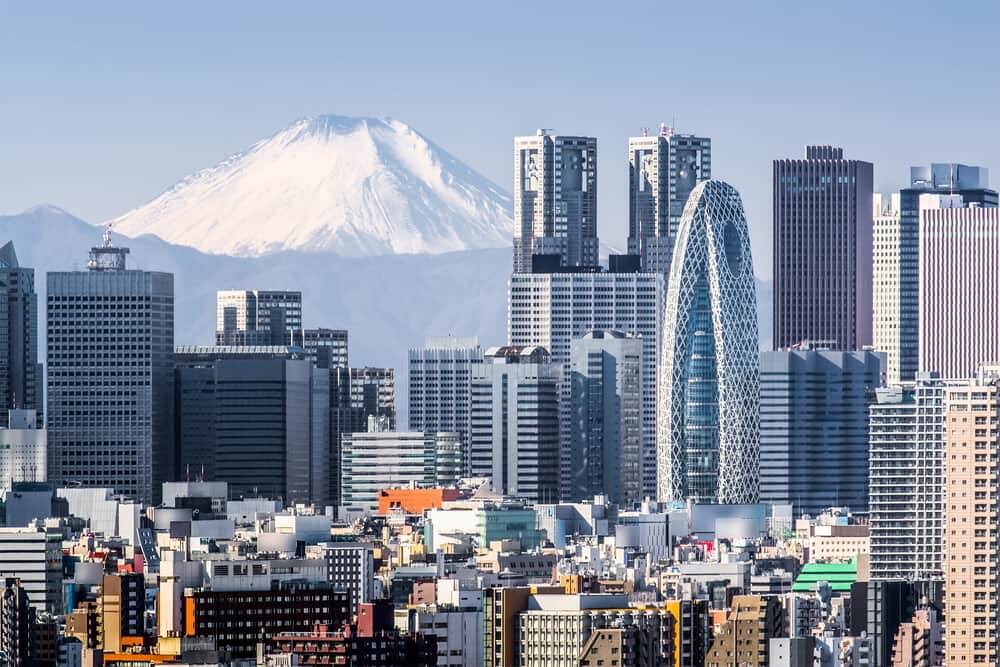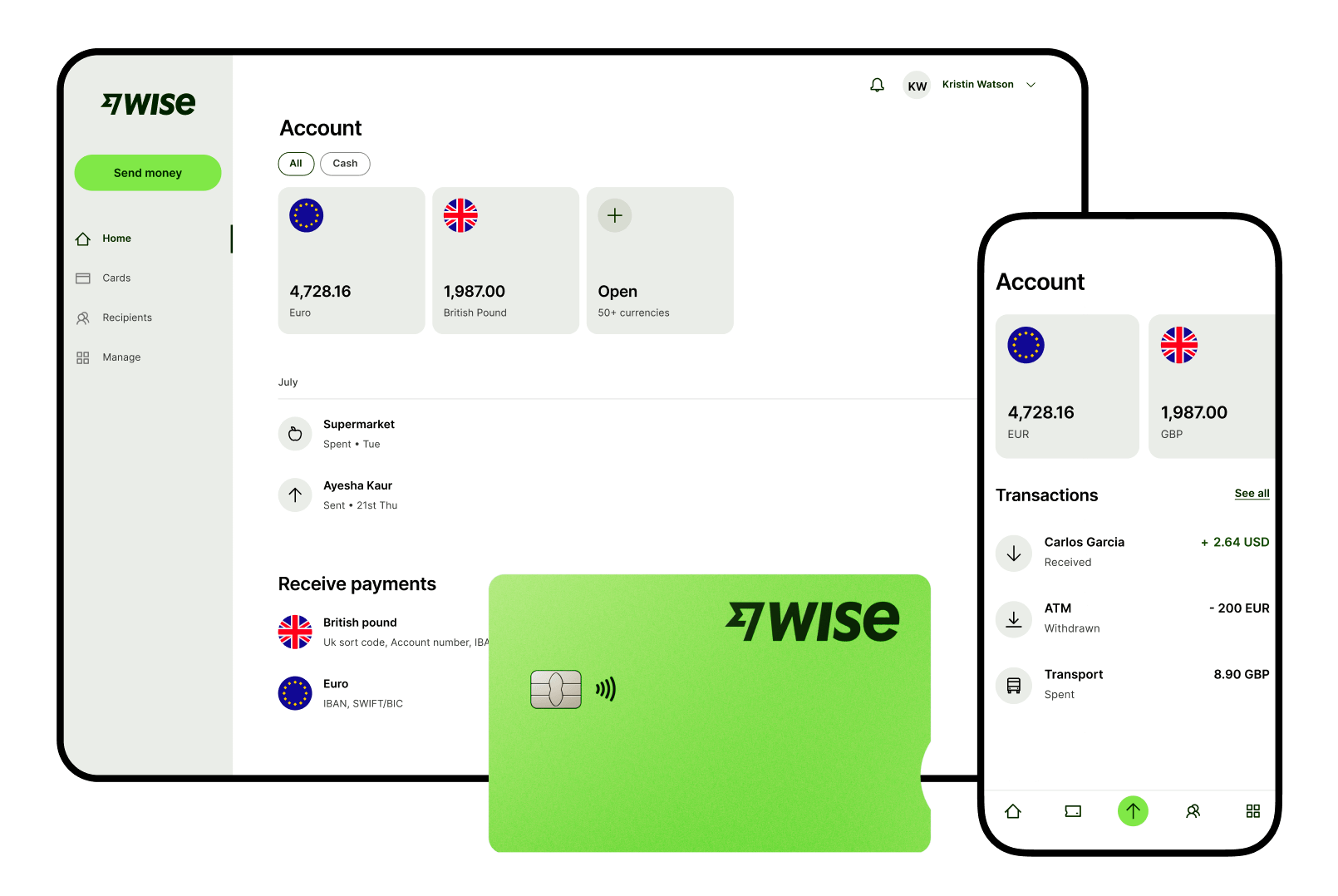
How to work in Japan: Jobs for Filipinos, requirements and more
Japan is a fascinating country. With rich culture, amazing food, and gorgeous nature, it is no wonder that foreigners are flocking in droves to not just visit, but also to work. Working in Japan offers job stability, as most Japanese companies are renowned for long-term employment, steady career progression, and competitive salaries. Japan’s workforce also enjoys generous benefits like comprehensive insurance, allowances, and bonuses.
Clean, safe, and efficient, Japan has long been one of the top destinations for Filipino professionals. In this blog post, we’ll cover all you need to know about working in Japan as a Filipino, including visas, requirements, popular sectors, and how to go about starting. We'll also introduce the Wise account, a handy companion to make your money go further with low, transparent fees.
| Table of contents |
|---|
Can Filipinos Work in Japan?
As of 2025, there are over 300,000 Filipinos living and working in Japan, accounting for approximately 10% of the foreign national population in the country. ¹
However, you’ll need a relevant work visa, and navigating Japan’s work visa situation might be tricky, as the country has over 30 that you can apply for!
Types of Japan Work Visas for Filipinos
Here’s a breakdown of the three main categories, the features of each one, and some examples.
Highly Skilled Professional Visa
There are a few types of HSP visas, and they all use a point-based system for qualification. This type of visa has three subtypes: advanced academic research, advanced technical or specialized activities, and advanced business management. The criteria you’ll be evaluated on are factors like education, work experience, salary, age, and Japanese language proficiency.
The visa is valid for up to 5 years, which is longer than others. It is one of the more common types of visas and provides a broader range of categories compared to the standard employment visa. With this visa, you’ll also have a greater chance of obtaining permanent residency, as some foreigners qualify in as little as three years.
Adding on to the HSP visa is the J-Skip program that was introduced in April 2023. This creates an even faster path to residency for top applicants, but the qualification requirements are steep.
For example, academic and technical applicants must have a minimum Master’s degree, 10 years of work experience, and an annual income of at least 20 million yen (PHP 7,700,000). Business applicants must have 5 years of business management or administration experience and an annual income of at least 40 million yen (PHP 15,400,000)²
Work Visa
The next category of visas would be the standard Work Visa for skilled professionals. However, this particular type of visa can also be broken down into different categories.
Here are some of the more common ones and a few examples of the actual profession.³
- Professor - Academic professionals
- Artist - Songwriters, artists, photographers
- Religious - Monks, priests, missionaries
- Legal and Accounting - Attorneys, accountants, and others who are certified in Japan
- Medical - Dentists, nurses, pharmacists, physicians
- Instructor - Teachers, tutors, etc.
- Engineer/Humanities - Specialists in humanities like scientific engineering, IT engineers, foreign language teachers, copywriters, and designers
- Specified Skilled Worker - SSWs are work-ready foreign nationals who have the skills and expertise in specific fields
In addition to these skilled work visas, there are also special kinds of visas, like entrepreneur and diplomatic visas. To be certain of which visa you are eligible for, you can check with the Embassy of Japan in Manila, a visa agent, or your would-be employer.
Requirements to Work in Japan for Filipinos
In addition to a valid visa, there are a few other requirements if you’re wondering how to work in Japan as a Filipino. First, you’ll need a passport that’s valid for more than six months. Then, you’ll need a COE, which is a Certificate of Eligibility from the Japanese Immigration Services Agency. You’ll also need the job offer or contract that clearly states the start date, end date, if any, and salary.
You might also need additional documents like a birth certificate, marriage certificate, CV, and educational and professional certifications. Some types of visas might also require you to highlight your Japanese language proficiency.
Then, you’ll need to complete the necessary forms and submit them together with passport-sized photographs. Filipinos working abroad might also need an OEC from the Philippine Overseas Employment Administration (POEA).
Japan Jobs for Filipinos
Japan job opportunities for Filipinos are numerous, but can be competitive depending on your field of work. Here are some of the popular sectors for Filipinos who want to work in Japan.
Healthcare Jobs
Like many other developed economies, Japan is an aging one, with an increasing number of seniors to care for, which means healthcare professionals like nurses, therapists, and specialists play a critical role. Filipinos are in high demand for facilities such as hospitals and senior homes.
An entry-level nurse earns an average of ¥3,000,000 (PHP 1,100,000) annually, while a specialized nurse practitioner can earn upwards of ¥7,500,000 (PHP 2,900,000).
Creative and Design Jobs
Being on the cutting edge of technology, Japan has a flourishing creative and design industry, and Filipino design professionals are in high demand. From graphic and interior design to brand strategy and marketing, many jobs are available across all sectors, especially in advertising, media, or branding.
Applying for these jobs typically requires quality references and a strong portfolio. Salaries vary greatly with experience, but a graphic designer’s wages typically start at ¥3,300,000 (PHP 1,200,000).⁵
Performing Arts Jobs
Japan is a cultural hotspot, and the demand for performing artists is strong. Actors, musicians, and dancers are often foreign talent who work freelance or on contracts. Income varies greatly based on experience, demand, and quality.
Agriculture Jobs
The aging population and gentrification of Japan also mean that there is some demand for agricultural jobs in suburban areas. Filipinos are often hired for seasonal planting, harvesting, and farm-related jobs. These jobs typically pay near the minimum wage, which is ¥1,055 to ¥1,118 an hour. (PHP 404 to 430).⁶
Manufacturing Jobs
Again, due to its aging population, Japan’s established manufacturing industry is going through a labour shortage. Assembly line jobs, machine operators, and quality control across numerous industries like food processing, automotive, and electronics are highly sought-after.
The average salary of a factory worker is around ¥1,990,000 (PHP 765,000), which computes to about ¥165,000 (PHP 65,000) a month.⁷
How to Apply for Work in Japan from the Philippines
If you’re wondering how to start, we’re here to help. Here’s a step-by-step guide on how to apply for work in Japan.
1. Browse Job Opportunities
After you’ve tidied up your CV and resume, start by browsing job portals, contacting recruitment agencies, and looking at your past business contacts to start applying for Japan jobs for Filipinos. Look at the popular sectors that have active Japan job hiring for Filipinos, like healthcare, manufacturing, and agriculture.
2. Meet Requirements
Once you’ve gotten a successful job offer or contract, ensure you have all your documents, like educational or vocational certificates, birth certificate, CV, and COE (Certificate of Eligibility) from the Immigration Services Agency.
3. Pass All Tests If Required
If your job has additional requirements like a medical exam or language proficiency test, be sure to take those first before making your visa application.
4. Apply For Visa
With the help of your future employer or a visa agency, apply for the relevant visa and be sure to submit all your documents.
5. Visa Approval
Once you’ve received your new visa, you can then book your flights and make plans to move to Japan.
Where to Apply for Jobs in Japan?
There are many ways to look for Japan job opportunities. You can try using a recruitment agency or check with some of your past business contacts to see if they have any opportunities in Japan. However, for the broadest reach, try online platforms to send out as many quality applications as you can. Here are some of the most popular platforms for Japan jobs for Filipinos.
DMW Website - The Department of Migrant Workers is the most reliable source for government-approved overseas job postings.
GaijinPot - This portal is designed for foreigners seeking work in Japan or already living there. You can find jobs, schools, apartments, and stay updated on events.
Jobs in Japan – From entry-level roles to top executives, this database has many openings where foreign applicants are welcome.
Daijob – This is Japan’s largest website for those who are bilingual. You can browse jobs for an extensive range of sectors and
Planning to work abroad? Manage your salary and get more pesos from your conversions when you send money with Wise

Before you move abroad, you'll need an easy way to manage multiple currencies and send money home.
With Wise, you'll get 8+ local account details including PHP, USD, GBP, AUD, and more. This way, you can receive money directly, in a cheap and convenient manner. All you need to get started is to sign up for a free account, and you'll be able to manage your money with just a few taps of your phone.
After getting your money, you can easily convert it to 40+ currencies, with low fees, and the mid-market rate - also known as the rate you see on Google. This includes exchanging to PHP with a one-time conversion fee from 0.57% that's shown upfront, and no markups or additional fees.
Receive, exchange, and move your funds to your local bank account in PHP in a cheap and convenient manner with Wise. Make working abroad cheaper and easier with Wise.
✍️ Sign up for a free account now
Sources:
- Republic of the Philippines Foreign Affairs - Distribution of Filipinos Overseas
- Ministry of Foreign Affairs- Highly Skilled Professional Visa
- Ministry of Foreign Affairs - Working Visa
- Terra Tern - Japan Nurse Salary
- Payscale - Average Graphic Designer Salary in Japan
- Japan Forward - Minimum Wage Talks
- Factory Worker Salary in Japan
*Please see terms of use and product availability for your region or visit Wise fees and pricing for the most up to date pricing and fee information.
This publication is provided for general information purposes and does not constitute legal, tax or other professional advice from Wise Payments Limited or its subsidiaries and its affiliates, and it is not intended as a substitute for obtaining advice from a financial advisor or any other professional.
We make no representations, warranties or guarantees, whether expressed or implied, that the content in the publication is accurate, complete or up to date.


